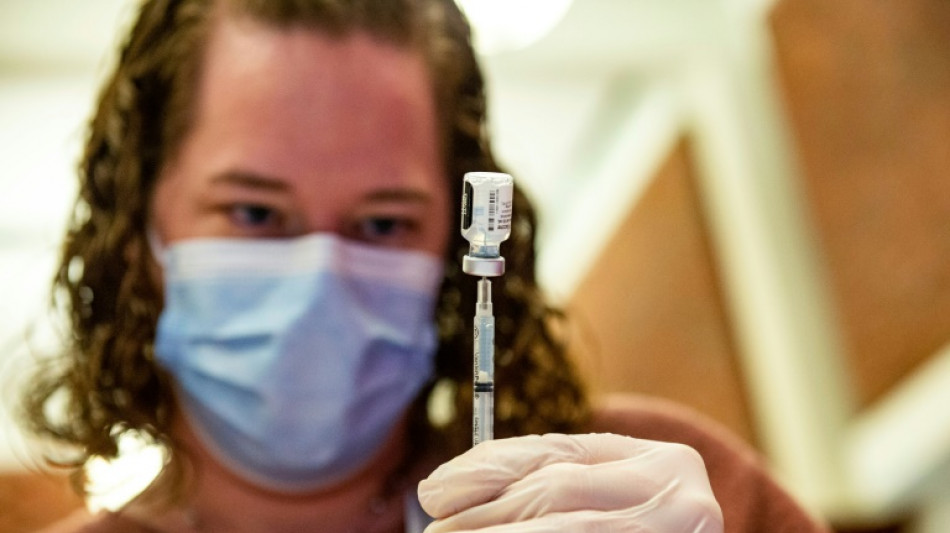
RYCEF
-0.4800


The EU's drug regulator on Thursday approved Covid-19 vaccines by Pfizer/BioNTech and Moderna adapted for the Omicron variant, paving the way for a booster campaign this winter.
The so-called "bivalent" jabs target both the original virus that emerged in the Chinese city of Wuhan in 2019 and the BA.1 subvariant of Omicron, the European Medicines Agency (EMA) said.
The vaccines are not updated for the newer and more infectious BA.4 and BA.5 types that have become dominant worldwide, with a decision on a jab to counter those variants expected within weeks.
The Amsterdam-based EMA said that the two jabs backed for people aged 12 and above on Thursday were the "first adapted Covid-19 booster vaccines recommended for approval in the EU".
"These vaccines are adapted versions of the original vaccines Comirnaty (Pfizer/BioNTech) and Spikevax (Moderna) to target the Omicron BA.1 subvariant in addition to the original strain of SARS-CoV-2," it said.
European nations have been keen to rush through the new generation of jabs so they can start booster campaigns ahead of a feared Covid surge in the latter part of this year.
EU Health Commissioner Stella Kyriakides hailed the decision as "important to protect Europeans against the likely risk of autumn and winter waves of infections."
"We need to be ready to face another winter with Covid-19," she said in a statement.
The EMA said that studies showed that the new jabs could "trigger strong immune responses" against Covid.
It said that "in particular, they were more effective at triggering immune responses against the BA.1 subvariant than the original vaccines."
- New strains -
The EU's Kyriakides said she expected the EMA to rule on vaccines adapted for the now-dominant BA.4 and 5 strains "in the coming weeks."
Pfizer recently applied for authorisation for a vaccine adapted against the two newer types.
The United States authorised its first anti-Omicron vaccines on Wednesday, approving Pfizer and Moderna jabs for the BA.4 and BA.5 strains.
Britain authorised the Moderna vaccine for the BA.1 type in mid-August.
The 27-nation EU is currently still using the same coronavirus vaccines that were approved nearly two years ago for use against the original strain.
While they offer some protection against newer variants, the race has been on to produce jabs that also target the milder but more infectious Omicron strains.
While previous "variants of concern" like Alpha and Delta eventually petered out, Omicron and its sublineages have dominated throughout 2022.
The BA.4 and BA.5 types have in particular helped to drive a wave of new cases of the disease in Europe and the United States in recent months.
Health authorities have therefore been keen to get updated vaccines as soon as possible ahead of a feared new wave of the disease later this year.
All Omicron variants tend to have a milder disease course as they settle less in the lungs and more in the upper nasal passages, causing symptoms like fever, tiredness and loss of smell.
Y.Su--ThChM